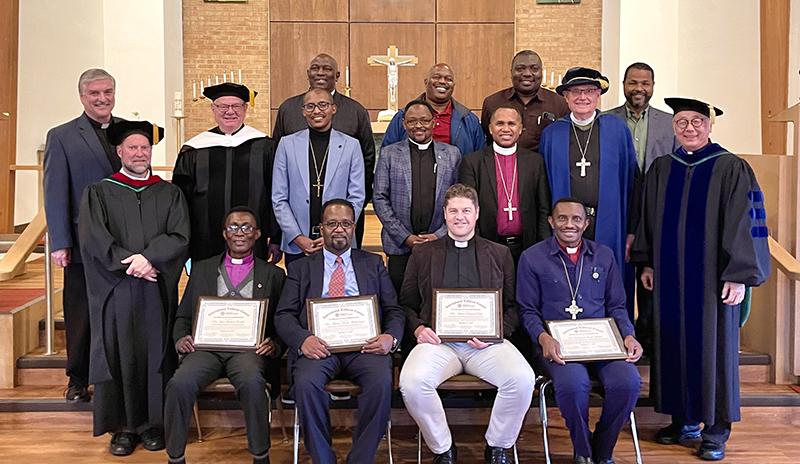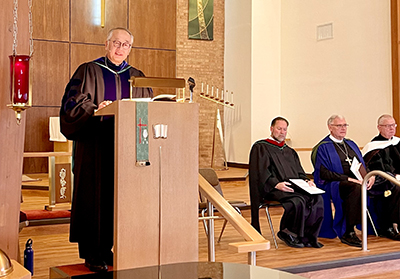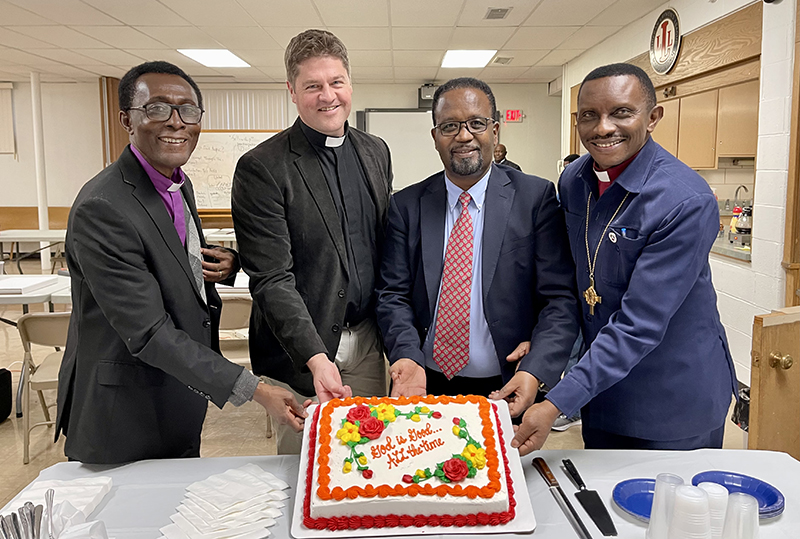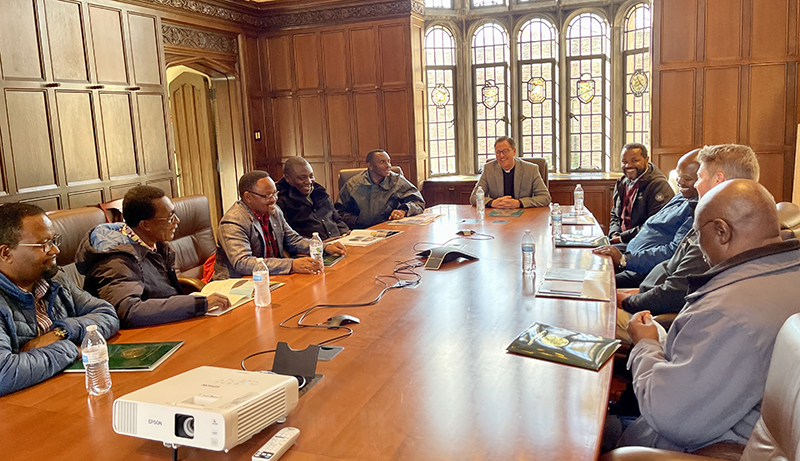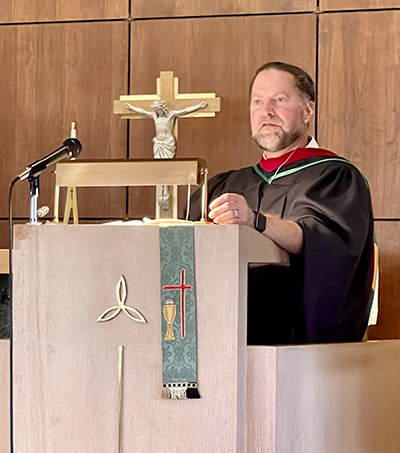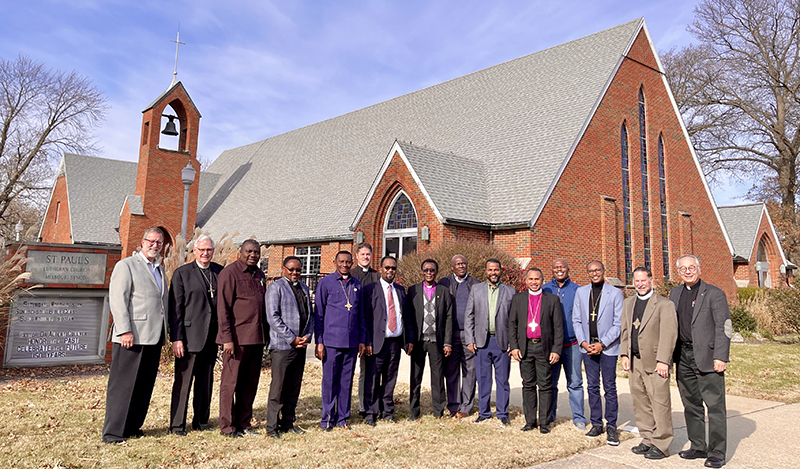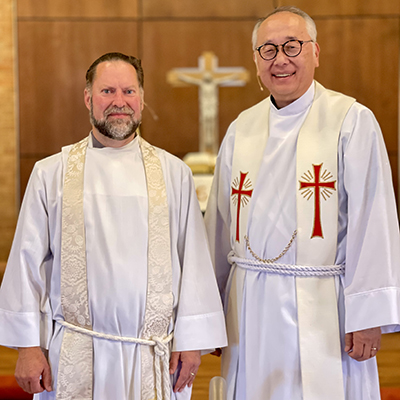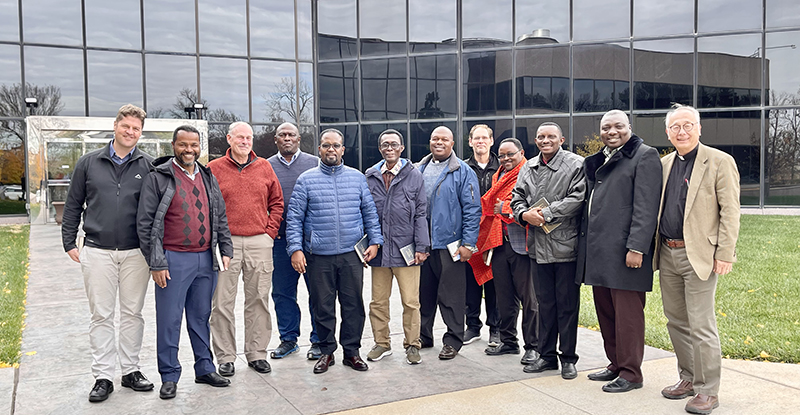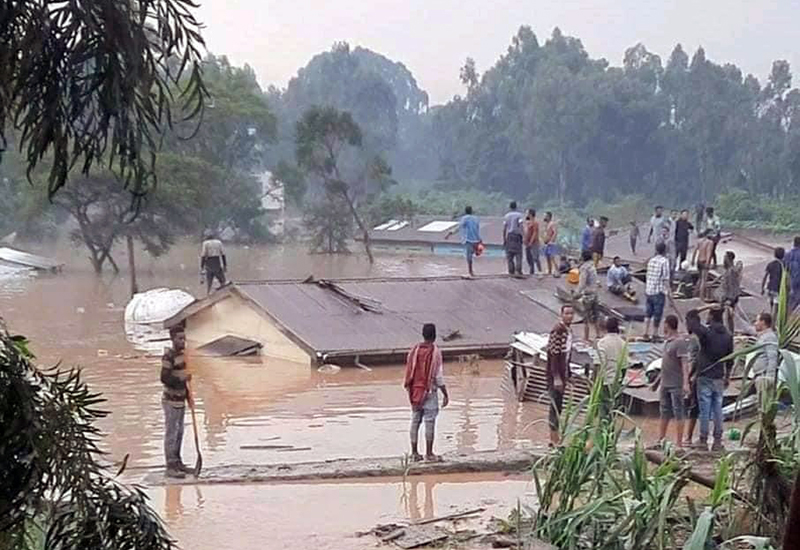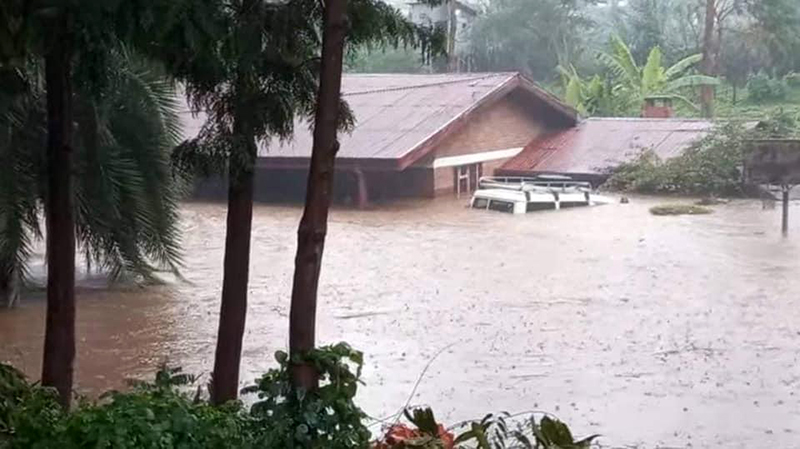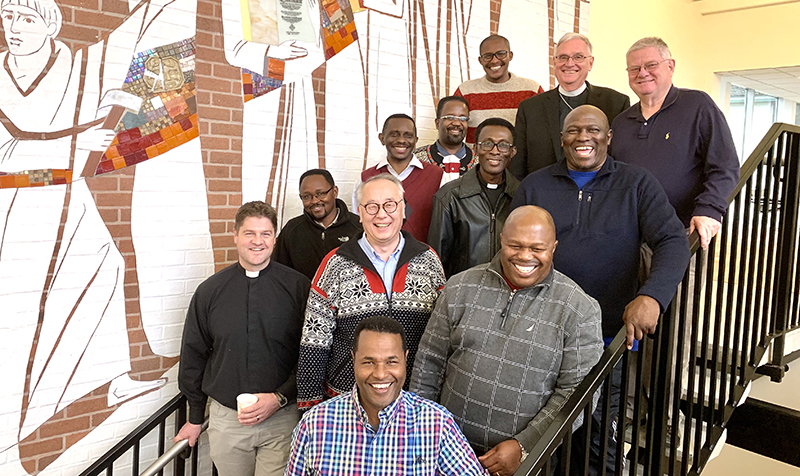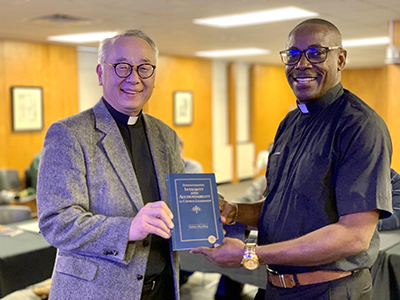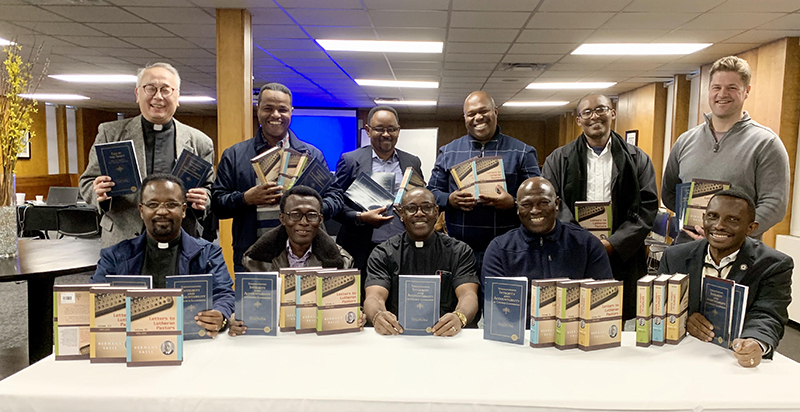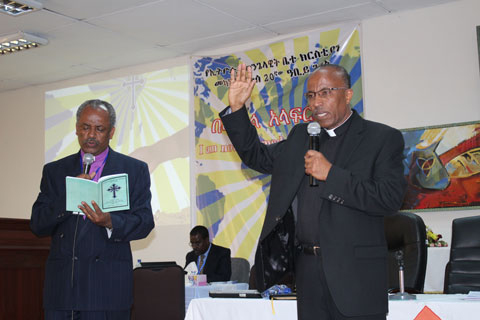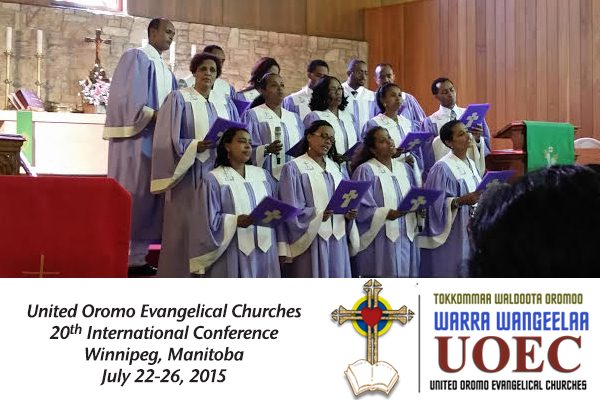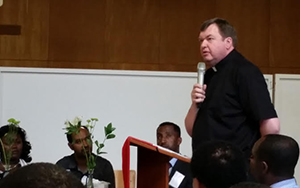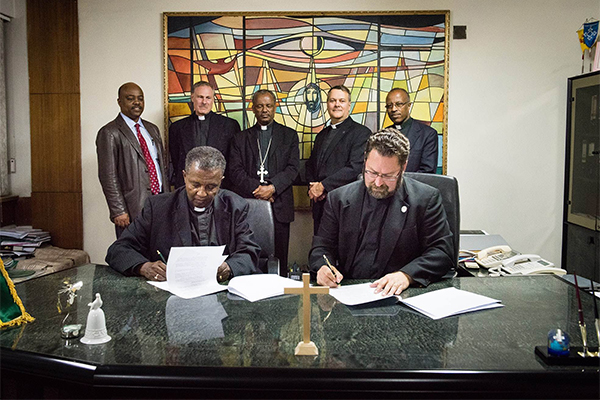
WORLD – The International Lutheran Council (ILC) is pleased to announce the reception of two church bodies in Ethiopia and Sri Lanka as observer members. The Ethiopian Evangelical Lutheran Church (EELC) and the Ceylon Evangelical Lutheran Church (CELC) were officially accepted during a meeting of the ILC’s Board of Directors on May 9, 2023.
“It is a joy to welcome the Ethiopian Evangelical Lutheran Church as members in the International Lutheran Council,” said ILC General Secretary Timothy Quill. “I look forward to growing in our new relationship, as we unite together in proclamation of the Gospel of Jesus Christ.”
“We are a confessional church which wants to keep our Lutheran heritage,” noted EELC President Mussie Alazar Niamen on his church’s decision to apply for membership. “We are looking to have a strong relationship with other confessional Lutheran churches in the ILC, so that we can be encouraged to continue as a confessional Lutheran church in Ethiopia.”
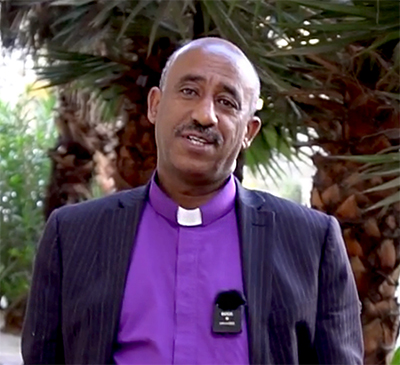
The EELC has more than 27,500 members in 120 congregations and 30 mission stations throughout Ethiopia. The church operates a seminary in Asella and plans to open another seminary in Addis Ababa. The EELC also operates schools, clinics, and child development projects. The church was established in 1921 through the mission work of Swedish Lutherans. It enjoys relationships with several ILC member churches, including the Evangelical Lutheran Church of Kenya, the Mission Province in Sweden, and the Evangelical Lutheran Mission Diocese of Finland.
The same meeting which welcomed the EELC also saw the International Lutheran Council welcome the Ceylon Evangelical Lutheran Church back into membership.
“The Sri Lankan church has a long history of membership in the ILC, which lapsed in recent years as the church attempted to restructure itself,” noted General Secretary Quill. “It is a joy to welcome the Ceylon Evangelical Lutheran Church back into the ILC and to renew our friendship.”
The CELC has applied for full membership in the ILC but votes on full membership can only be taken during ILC World Conferences (the next of which is scheduled for 2025). In the meantime, the CELC has been accepted as an observer member.
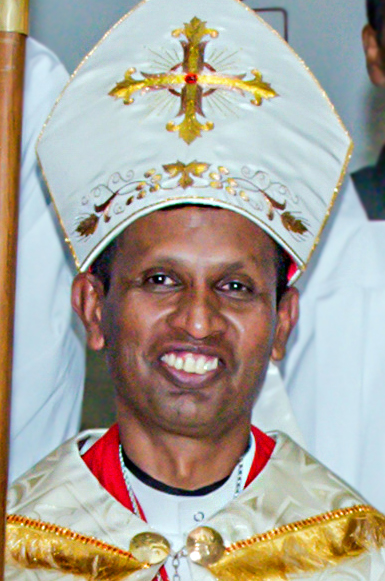
“We praise God He gave a wonderful opportunity to renew our relationship for the glory of God,” said CELC Bishop Arumanayagam Arulchelvan. “We had a good relationship previously under the name of the Lanka Lutheran Church, and our participants from Sri Lanka have been enriched by the international theological conferences organized by the ILC.”
Bishop Arulchelvan further noted the value of associating with the ILC, saying that “becoming associated with an institution like yours which follows confessional teachings” is “helpful for churches like us as we grow in correct teachings.”
Rev. Roger James, the ILC’s Assistant to the General Secretary, also welcomed the news of the CELC’s acceptance into the ILC. “The CELC is a small church that has had many struggles, enduring decades of ethnic insurgency, the massive tsunami of 2004, and most recently economic collapse and political turmoil,” he noted. “The Lord has been with them through them all. What joy that they are a part of the ILC and know they have Lutheran brothers and sisters all over the world.” Rev. James has a close relationship with the Sri Lankan church, having served as a missionary of The Lutheran Church—Missouri Synod (LCMS) in Sri Lanka from 2013-2018.
The CELC has approximately 800 members in 14 congregations. It is the successor to the former Lanka Lutheran Church, which traces its history back to 1958 when a missionary from The Lutheran Church—Missouri Synod arrived in the country. The church continues its close relationship with the LCMS.
The International Lutheran Council is a global association of confessional Lutheran church bodies which proclaim the Gospel of Jesus Christ on the basis of an unconditional commitment to Scripture and the Lutheran Confessions as the true and faithful exposition of the Word of God. The ILC exists to encourage, strengthen, and promote confessional Lutheran theology and practice centering in Jesus Christ, both among its members and throughout the world.
———————

